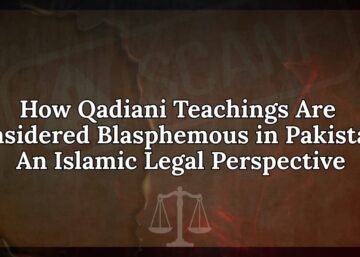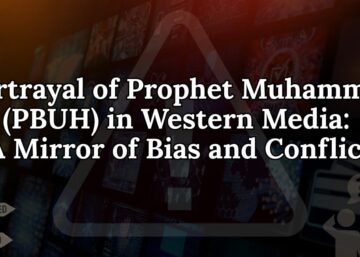Following decades of rising violence, discrimination, and harassment toward Muslims around the world, the United Nations warned that Islamophobia has risen to “alarming levels” everywhere. There have been acts of desecration of the Holy Qur’an in Europe and Muslims being restricted from worship, as well as violent attacks on Islamic centres. These incidents create fear, distrust, and division and are perpetuated by political and social hate campaigns. These are not isolated incidents in one country or region but are indeed a global issue that reflects deep-rooted prejudices, political conflicts, and misunderstandings about Islam and its followers.
Palestine: A Humanitarian Crisis
One of the most widely documented instances of violence against Muslims is the situation in Palestine. For decades, Palestinians have faced systemic oppression, displacement, and violent military actions. The situation worsened in 2024 as Israelis blockaded, targeted civilian infrastructure, and imposed restrictions on access to holy sites like the Al-Aqsa Mosque. Reports indicated extreme cases of malnutrition, poor medical supplies, and desecration of sacred places: a continued series of difficulties that Palestinian people face. International silence or inadequate response aggravate the Palestinian plight, leaving millions of people in a constant state of insecurity and despair.
Pakistan: Challenges of Misrepresentation
In such a global scenario, Pakistanis are oftentimes stereotyped and discriminated against in general, more so since the post-9/11 era, when Muslims have unfairly been characterized as extremists. This stigmatization has resulted in challenges, ranging from visa denials to workplace discrimination.
Muslims in Non-Muslim Majority Countries
Islamophobia has abruptly increased in many Western and non-Muslim majority countries, as Muslims face hate crimes, mosque vandalism, and harassment in public spaces. Already marginalized, discriminatory laws include bans on wearing hijabs or practicing any other aspect of the Islamic way of life. This is, for example, in countries such as India, where anti-Muslim rhetoric causes violent incidents, and in China, where a Uighur Muslim population is kept under watch, detained, and re-educated in camps to counter terrorism. Muslims in India, China, and Myanmar also face systematic problems, from persecution of Rohingya Muslims to assimilation policies by force in Xinjiang and discriminatory laws practiced in India. Muslims around the world deserve attention and action to fight the scourge of religious intolerance.
Since October 2023, reports of incidents against Muslims, organizations such as CAIR reporting complaints, have increased by 178%. Some examples include the horrible stabbing of a 6-year-old Palestinian-American boy in Illinois and three Palestinian students murdered in Vermont. These are part of an overarching pattern of hate crimes, workplace discrimination, and harassment in the wake of the Israel-Gaza conflict.
A man entered the Islamic Society of Markham mosque in Canada. Equipped with a weapon, threatened to burn down the mosque and tried to run over worshippers in the parking lot. The attack traumatically affected the local Muslim community.
Indian policies and rhetoric by political parties frequently demonize Muslims, portraying them as enemies who threaten to disturb cultural and religious balances. For instance, the Citizenship Amendment Act protests, where Muslim participation was labelled anti-national
The Role of Media and Misinformation
Another factor behind violence and discrimination is the representation of Muslims in the media. Sensationalized reports frequently associate terrorism with Islam and tie it to harmful stereotypes, fueling fear. Such misconceptions feed societal bias, making it quite easy for governments or groups to justify oppressive policies or actions against Muslims.
The Beauty and Harmony of Islam
Amid the challenges, Islam’s teachings focus on universal principles of peace, tolerance, and coexistence. The Prophet Muhammad (PBUH) taught Muslims to treat all humankind with respect and kindness above faith, race, and nationality. Core values of Islam, like charity (Zakat), honesty, and fairness, are the building blocks of a harmonious society.
The concept of “Ummah” in Islam emphasizes unity and collective welfare, promoting the protection of a vulnerable people even when they have different beliefs. These principles are still at the heart of countering misinformation that sparks Islamophobia worldwide.
Reality of Muslims and Islam
Contrary to the stereotypes, Muslims worldwide significantly contribute to the development of society in fields like science, medicine, art, and politics. Islamic history reveals that its rich civilizations are unparalleled, showing the highest level of intellectual advancement, greatly contributing to mathematics, astronomy, and medicine.
Despite facing discrimination, Muslims continue to plead for justice, education, and community welfare. They stand as icons of resilience and devotion to the core Islamic tenet of “There is no compulsion in religion” (Qur’an 2:256). This is a testament to Islam’s respect for human freedom and belief. Scholars such as Al-Khwarizmi, referred to as the “father of algebra,” revolutionized the facets of mathematics, while the father of modern medicine, Ibn-e-Sina (Avicenna), laid the foundations for modern medicine through his Canon of Medicine. These contributions not only changed the face of medieval Europe but also promoted cross-cultural exchange and collaboration. Exemplary architectural achievements like the Alhambra in Spain and the Taj Mahal in India stand as testaments to the beauty and spirituality which were all-embracing in human civilization. Islamic art emphasizes patterns and geometry, reflecting a harmony that transcends linguistic and cultural barriers.
Muslim organizations, across the globe, that lead humanitarian efforts: disaster relief and educational drives in the least developed areas. Organizations, such as Islamic Relief, the Aga Khan Development Network and Edhi, are examples of Islam’s focus on charity and social responsibility. Muslims are at the forefront of interfaith initiatives, campaigning for peace and mutual understanding. There are leaders such as Dr. Muhammad Tahir-ul-Qadri and international forums like the Muslim Council of Elders that encourage dialogue to counter extremism and build global unity. Muslim professionals have excelled in technology, law, and public service and continue to stand out as paradigms of inclusion and leadership. Figures like Malala Yousafzai and Nobel laureate Dr. Muhammad Yunus inspired a global education movement and poverty-eradication movements, respectively.
Conclusion
The rise of Islamophobia around the world is a troubling sign of growing division and fear, but Islam’s true teachings—of peace, compassion, and unity—offer a way forward. While Muslims are increasingly targeted by discrimination and violence, it’s important to remember that these actions don’t reflect the core values of Islam, which emphasize justice, mercy, and respect for all people. In the face of rising prejudice, we must work toward a society where empathy and understanding replace hate, and where our differences are seen as a strength, not a threat. The real path to healing lies in embracing Islam’s message of peace and coexistence for a more united world.



